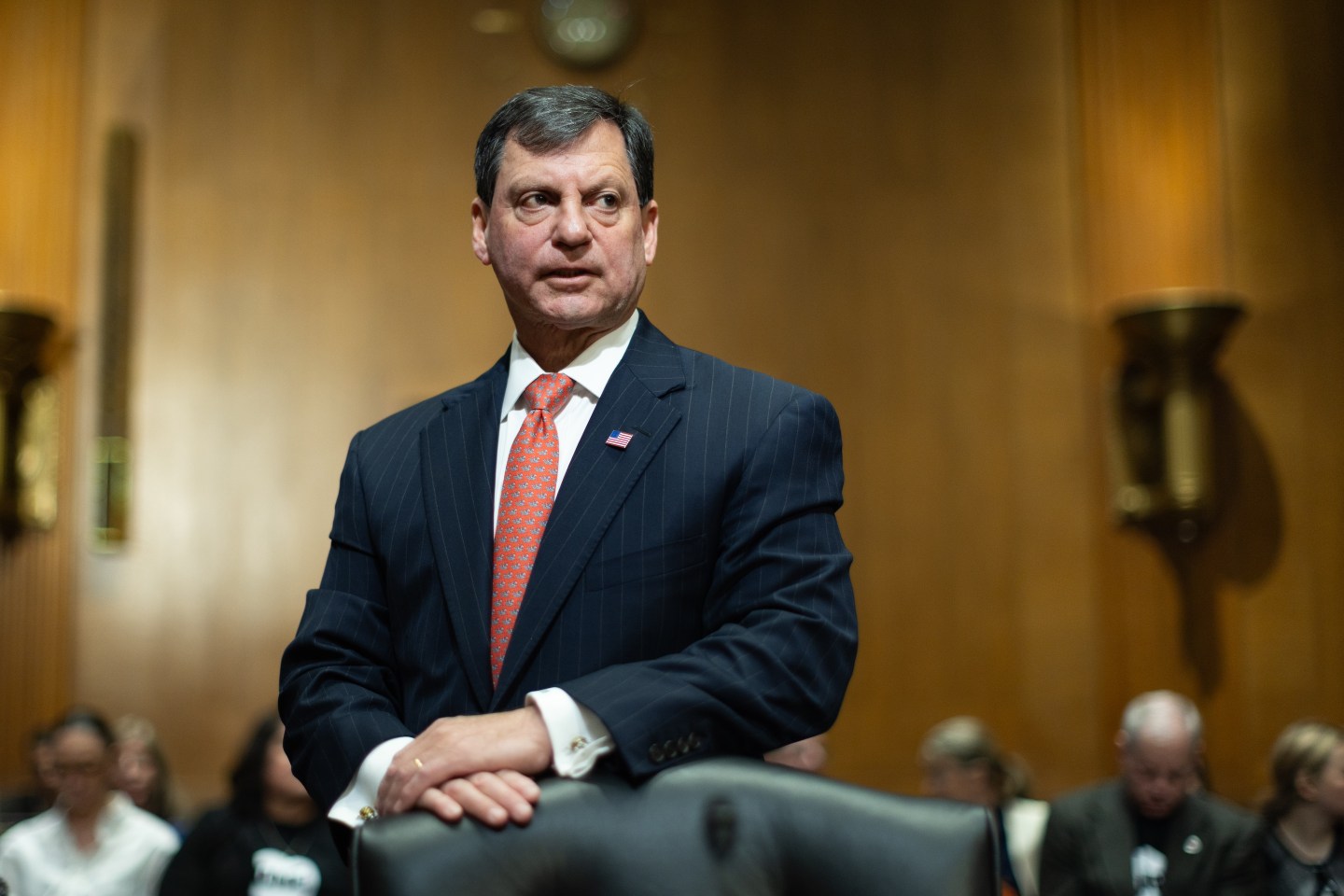Good morning! Paige here, filling in for Amber.
Tomorrow is Transgender Day of Visibility, intended to celebrate transgender individuals and highlight their plight. But the record number of anti-trans laws introduced this year casts a dark shadow over the occasion.
Some corporations have stepped up, enacting anti-discriminatory policies in their workplaces as laws targeting transgender individuals ramped up in 2015, says Deena Fidas, managing director and chief program and partnerships officer at Out & Equal.
“[Companies] started to look around in the communities in which they operated and said, ‘We have to be concerned not just with the nine-to-five worker, but with the five-to-nine worker,’” she says. “In other words, what happens to our people when they’re outside of our four walls?”
But Fidas also notes this has been a “virulent year for anti-transgender legislation.”
There are many actions employers can take to improve trans and gender-expansive inclusion in the workplace. HR teams can start by educating leaders and employees to avoid burdening trans employees with potentially invasive or insensitive questions. Organizations like Out & Equal offer several resources for employees, including how to celebrate Transgender Day of Visibility in the workplace and the global history of nonbinary gender identities.
“We spent a fair amount of time educating [at Indeed],” says Paul Wolfe, a former CHRO at the job search platform. “I think that puts people at ease because…they’re not sure, ‘Can I ask a transgender employee this question?’ and they want to be respectful of that.”
Employers can also establish inclusive policies like encouraging employees to share their pronouns and tap their LGBTQ and allies resource groups.
At Indeed, Wolfe says the company worked with the transgender subgroup of its LGBTQ affinity group to develop a playbook outlining responsibilities and guidelines to accomodate transgender employees. The company paired employees seeking gender-affirming care with DEI and benefits partners to navigate care access, connected parents of transgender minors to the resource group, and helped parents navigate mental health benefits available for children through their family’s health plan.
“Our approach was: How do we partner with folks who are transgender, gender non-conforming, or going through gender reassignment and understand the challenges they face? And how do we work with them collaboratively to help create tools and a more seamless process for folks going through this in the future?” Wolfe says.
Paige McGlauflin
paige.mcglauflin@fortune.com
@paidion
Reporter's Notebook
The most compelling data, quotes, and insights from the field.
Earlier this month, Fortune spoke with Truist’s chief inclusion and diversity officer, Dominica Groom, about how DEI practitioners can keep the momentum of their work despite an economic downturn.
“Post-pandemic, a lot of employees came out with expectations around flexibility, company culture, benefits, etc., and DEI is a part of that. You're finding that employees want to work for companies committed to ESG, which includes DEI and corporate citizenship, so I would strategically encourage my fellow practitioners to leverage that as an opportunity. Even if companies have to make cuts or reassess their talent pool, the reality is that you want the best talent.”
Around the Table
A round-up of the most important HR headlines, studies, podcasts, and long-reads.
- More than 300 million jobs could become automated as a result of A.I., according to Goldman Sachs. CNN
- A judge ruled Wednesday that the spouses of tech employees on H1-B visas can legally work in the U.S. Bloomberg
- The National Labor Relations Board told Starbucks it must allow union representatives to negotiate a labor contract via Zoom. Quartz
- United Airlines and the union representing its ground staff reached a tentative labor agreement that will include “industry-best wages” and job protection guarantees. CNBC
- Employees who participated in a trial of the four-day workweek say it changed their lives despite a brief adjustment period. Insider
Watercooler
Everything you need to know from Fortune.
Toxic coworkers. It can be harder to avoid toxic colleagues as return-to-office mandates increase. —Orianna Rosa Royle
DEI in networking. Although networking is critical to landing a new job, white men still dominate it. —Megan Leonhardt
Starbucks testifies. Sen. Bernie Sanders (I-Vt.) grilled Starbucks founder Howard Schultz at a Senate hearing on Wednesday over what he deems the company’s unlawful treatment of unionized employees. —Dee-Ann Durbin
Big Brother goes corporate. Many remote companies admit to monitoring their employees. —Jane Thier
This is the web version of CHRO Daily, a newsletter focusing on helping HR executives navigate the needs of the workplace. Today’s edition was curated by Paolo Confino. Sign up to get it delivered free to your inbox.













